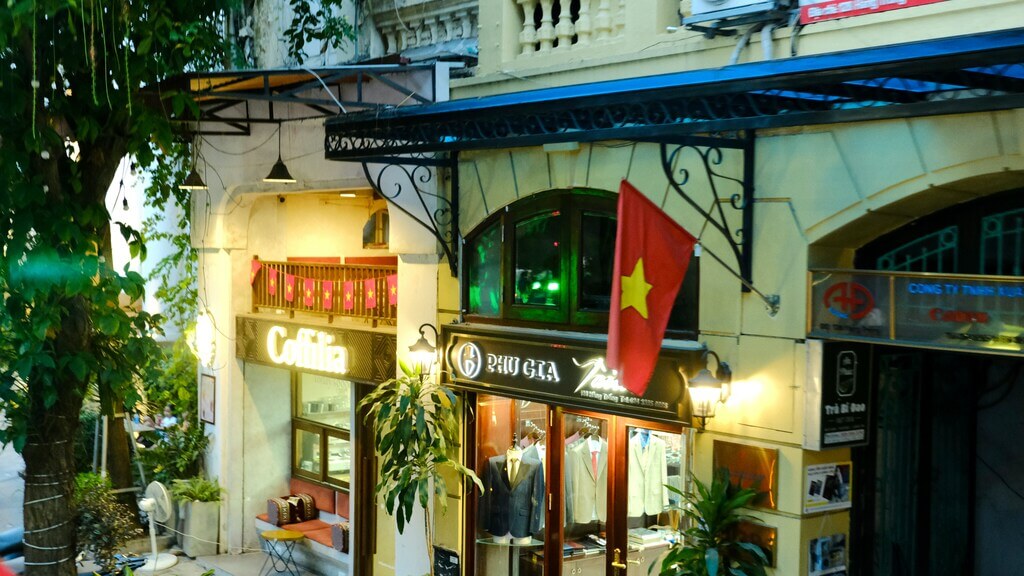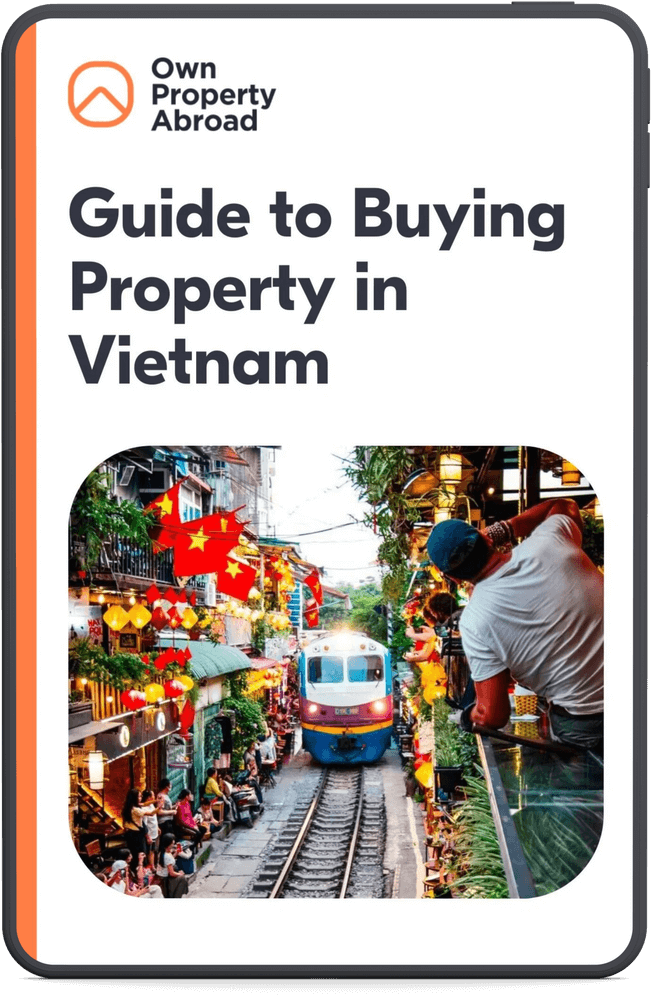Electricity in Vietnam
One of the first house utilities in Vietnam you must prioritize is electricity, as it is essential for the functioning of your home. A single electricity provider in Vietnam manages the country’s centralized electricity supply system, the Vietnam Electricity Group (EVN), which operates under the Ministry of Industry and Trade. This national grid provides domestic electricity in Vietnam at a standard voltage of 220 volts AC (50 Hz). Plug types vary across the country: the Type A plug is standard in southern Vietnam, while Type C is prevalent in the north. Additionally, some modern hotels may also offer the 3-pin Type G plug.
Valuable insights and practical advice, distilled from years of expertise and real-world experience.


Setting up electricity in your home
The electricity account is typically maintained in the landlord’s name when renting a property for house utilities in Vietnam. Usually, the Vietnam electricity cost is included in the rent, with the landlord managing the account details. As a homeowner, however, you are responsible for setting up your electricity account. This means you need to change the current account details to your name for house utilities in Vietnam. Here is what you need to set up a new account:
- Application form (Available from any local EVN branch)
- Proof of address
- Certificate of house ownership or rental contract
- Residency card or passport (Foreigners also need a valid visa)
- Copy of ID
- Pay a fee for any equipment related to electricity connection
Setting up utilities in Vietnam for electricity typically takes 5 to 7 days to activate after submitting your application. Electricity bills for house utilities in Vietnam are issued monthly, with an EVN employee normally visiting your home on a fixed date to read the meter. For tenants, the Vietnam electricity cost is generally included in the rent and managed by the landlord. On the other hand, homeowners can pay their bills at various banks, such as ViettinBank, AgriBank, Eximbank, and Saigon Bank. In today’s digital age, you can settle your bills for house utilities in Vietnam using a local bank’s mobile app.
Here is the retail electricity tariff for residential use according to the electricity provider in Vietnam:
| Customer group | Rate per kWh |
|---|---|
| Rate 1: For the kWh from 0 – 50 | ₫ 1,893 ($0.07) |
| Rate 2: For the kWh from 51 – 100 | ₫ 1,956 ($0.08) |
| Rate 3: For the kWh from 101 – 200 | ₫ 2,271 ($0.09) |
| Rate 4: For the kWh from 201 – 300 | ₫ 2,860 ($0.11) |
| Rate 5: For the kWh from 301 – 400 | ₫ 3,197 ($0.12) |
| Rate 6: For the kWh from 401kWh onwards | ₫ 3,302 ($0.13) |
| Retail price in Vietnam for residential use via prepaid card meter | ₫ 2,776 ($0.11) |
Water supply
The sloping terrain from northwest to southeast plays a crucial role in the water supply in Vietnam, concentrating surface water resources in the southeast, where major river basins are located. This leaves the mountainous northern areas with less accessible surface water for house utilities in Vietnam. Although most people in some countries drink directly from the tap, this practice is discouraged in Vietnam due to tap water quality. Locals and foreigners alike are advised to use tap water only for hygiene purposes, such as washing dishes or bathing, and rely on bottled water for drinking.
Setting up water connection in Vietnam
To set up a water connection in Vietnam, the application process includes the following:
- Application form (obtainable from any local branch of the water company)
- Copy of ID.
- Residency card or passport (foreigners also need a valid visa)
- Proof of address (necessary for location verification)
- Certificate of house ownership or rental contract
- Fee for water meter
Setting up utilities in Vietnam for water connection typically takes 3 to 5 days after submitting the form. Monthly water bills for house utilities in Vietnam are issued based on meter readings, and payments are made either in cash to a water company agent, at a local branch, or via some companies that accept bank transfers and ATM payments.
Given that tap water is not drinkable directly in house utilities in Vietnam, residents often employ various alternatives:
- Water filters: Portable filtration systems that purify tap water for drinking.
- Bottled water delivery services: A convenient alternative that ensures a steady drinking water supply.
The table below gives an overview of the price range for water supply in Vietnam.
| Classification | Minimum price (VND/m3) | Maximum price (VND/m3) |
|---|---|---|
| Special, grade-1 cities | ₫ 3,500 ($0.14) | ₫ 18,000 ($0.70) |
| Grade-2, grade-3, grade-4 and grade-5 cities | ₫ 3,000 ($0.12) | ₫ 15,000 ($0.59) |
| Rural areas | ₫ 2,000 ($0.08) | ₫ 11,000 ($0.43) |
Gas supply
When settling into a new home, understanding the types of gas available for cooking and heating is crucial for house utilities in Vietnam. The most common form of gas is LPG (Liquefied Petroleum Gas), which is popular for cooking and heating. In urban areas, gas mains are available but require an employee to set up an account and periodic meter reading checks. Due to this hassle, most homeowners prefer gas bottles, typically measured in 12kg, which are cost-effective and convenient. These gas bottles offer a practical solution for house utilities in Vietnam, especially in rural areas where tank delivery services make them accessible and easy to manage.
Setting up and using gas services in Vietnam
When planning to set up gas services in Vietnam, it is helpful to understand the two options available: mains gas and bottled gas.
Mains gas
For those living in urban areas, mains gas is a convenient option similar to setting up an electricity account for house utilities in Vietnam. Payments are typically made monthly based on a meter reading. To streamline the setup for house utilities in Vietnam, seeking assistance from a local or consult your landlord is beneficial. Here is a list of mains gas providers:
- Tan An Binh
Address: 60 Nguyen Thi Dinh, Trung Hoa, Cau Giay District, Hanoi
Tel: (04) 35371353 - MES SIX
Address: 16A Nguyen Binh Khiem Street, Ward 1, Go Vap District, Ho Chi Minh
Tel: (08) 35880123
Gas bottles
Bottled gas may be a more straightforward option for households using gas sparingly than the hassle of setting up a mains gas account. Typically, these gas bottles weigh between 11-12 Kg. Major suppliers for house utilities in Vietnam include City Gas and Saigonpetro.
- City Gas
Tel: (08) 22215277 - Saigonpetro
Address: 27 Nguyen Thong Street, Ward 7, District 3, Ho Chi Minh City
Tel: (08) 39307989
When ordering and refilling bottled gas, contact the supplier via the phone numbers provided and place your order.
Here are four safety tips for gas use at home:
- Regular inspections: Check your gas appliances and bottles for leaks using a soap and water solution at joints and connections.
- Proper ventilation: Ensure your kitchen or any area where gas is used is well-ventilated to prevent gas build-up.
- Installation and maintenance: Have a professional install your gas appliances. Likewise, schedule regular maintenance checks.
- Emergency awareness: Familiarize yourself and your family with emergency shutting procedures in case of gas leaks and have emergency supplier contacts readily available.

Internet and television
Living in the digital age, a reliable internet connection and access to television are crucial for both work and leisure. The demand for high-speed internet is steadily rising, and providers are responding with competitive package prices in Vietnam. Internet service is predominantly provided through fiber-optic cables, ensuring fast and stable connections. Television options are equally diverse for house utilities in Vietnam. Besides the standard local channels, many foreigners seek international cable or satellite services to stay connected with global news, shows, and sports.
Internet services
Regarding internet services in Vietnam, two of the most common types are fiber-optic and ADSL. Fiber-optic is known for its high speed and reliability. Using fiber-optic cables to transmit data quickly makes it ideal for heavy internet users, gamers, streamers, and households with multiple users, generally providing symmetrical upload and download speeds. On the other hand, ADSL (Asymmetric Digital Subscriber Line) uses existing telephone lines to deliver internet service, is generally slower compared to fiber-optic, and offers different upload and download speeds with higher download speeds. This makes it more suited for basic browsing and moderate internet use for house utilities in Vietnam.
To begin setting up internet services in Vietnam, research the area’s different Internet Service Providers (ISPs). Popular ISPs include:
- Viettel: Viettel offers nationwide coverage, including extensive reach into rural areas for house utilities in Vietnam. Speed options range from 30 Mbps for basic browsing and streaming to 300 Mbps for heavy-duty tasks like online gaming and 4K streaming. They also provide packages including internet and television services and frequently have special offers and bundle discounts.
- FPT Telecom: Financing and Promoting Technology or FPT Telecom has nationwide coverage and a strong urban presence. Its speed options start at 20 Mbps for basic browsing and light streaming and go up to 150 Mbps for tech-savvy users needing high-speed internet. Additionally, it offers bundled packages that include digital TV services for house utilities in Vietnam.
- VNPT: Vietnam Posts and Telecommunications Group, or VNPT, is the largest provider in Vietnam. It offers extensive infrastructure and speed choices from 30 Mbps for basic needs to 200 Mbps for high-demand users. VNPT often bundles internet and TV services and has special offers to make its services competitively priced.
Here is the process of setting up internet services in Vietnam:
- Research Internet Service Providers (ISPs): Investigate the available ISPs in your area; popular ISPs include Viettel, FPT Telecom, and VNPT.
- Select a plan: Compare packages and special offers from different ISPs that suit your needs and consult colleagues or neighbors for recommendations.
- Schedule installation: Contact your chosen ISP to schedule an installation appointment, providing your specific apartment address and district information.
- Prepare required documentation: Gather necessary documents, such as identification (passport or resident card) and proof of address (house or apartment lease agreement).
- Prepare for installation: Ensure power outlets and connections are easily accessible and clear the installation area to facilitate a smooth setup.
Valuable insights and practical advice, distilled from years of expertise and real-world experience.


Television options
Vietnamese TV audiences have long relied on cable and satellite TV services to access various channels and content for house utilities in Vietnam. Below is a comparison of some popular providers and their service packages.
Cable TV
Cable TV remains a popular choice in urban areas of Vietnam. It offers a selection of local and international channels, often bundled with internet services for house utilities in Vietnam. Here are the popular providers for cable TV in Vietnam:
- VTVCab: One of the largest providers, VTVCab offers a variety of channel packages, including sports, movies, and international content. Their services are known for reliability and quality. Basic packages start at approximately ₫ 120,000 ($4.68) per month.
- SCTV (Saigon Tourist Cable Television): SCTV provides extensive channel packages with options for HD channels. They also bundle internet services, making it a convenient option for households. Packages start at about ₫ 150,000 ($5.85) per month.
- HTVC (Ho Chi Minh City Television Cable): It is another major provider offering a wide range of local and international channels and offers interactive TV and VOD (Video on Demand). Basic packages start from ₫ 110,000 ($4.29) per month.
Satellite TV
Satellite TV is a viable option in rural areas with limited cable infrastructure. It provides access to a wide range of channels without requiring extensive cabling for house utilities in Vietnam. Here are the popular providers of satellite TV in Vietnam:
- K+ (VSTV): Jointly operated by VTV and Canal+ Group, K+ offers premium channels that are particularly popular for sports content, including football leagues. Packages start at around ₫ 125,000 ($4.88) monthly.
- VTC (Vietnam Television Corporation): VTC offers diverse channels and is known for high-quality transmission. Basic packages start at ₫ 100,000 ($3.90) per month.
Online streaming options
The rise of the internet has changed how people consume television, leading to a surge in online streaming services. These services for house utilities in Vietnam provide an on-demand experience, allowing viewers to access content anytime and anywhere. Here are the popular online streaming options:
- Netflix: Netflix offers a vast library of movies, series, documentaries, and originals. Plans range from ₫ 180,000 ($7.02) to ₫ 260,000 ($10.14) per month, depending on the number of screens and video quality.
- YouTube: YouTube provides a platform for a wide range of content, from user-generated videos to official shows and live streams. YouTube Premium, which costs ₫ 109,000 ($4.25) monthly, offers an ad-free experience and access to YouTube Originals.
- FPT Play: Operated by FPT, one of Vietnam’s largest telecommunications companies, FPT Play offers a diverse range of local and international content, live TV channels, and sports broadcasts. Packages start at ₫ 88,000 ($3.43) per month.
- VTV Go: Vietnam Television’s official streaming service, VTV Go, allows viewers to watch VTV’s channels live or catch up on missed shows. It is accessible via mobile and web platforms. It is free to use, with optional in-app purchases.
- VieON: VieON provides a rich selection of local content, including TV shows, movies, and live TV. It is known for its user-friendly interface and extensive library. Subscription starts at ₫ 49,000 ($1.91) per month.

Waste disposal and recycling
Proper waste disposal and effective recycling practices are critical to maintaining Vietnam’s environmental and public health standards. This country faces unique challenges and opportunities in managing its solid waste. For house utilities in Vietnam, solid waste can be broadly categorized into three main types:
- Municipal waste: This includes residential, commercial, and market waste.
- Industrial waste: This includes hazardous waste from factories, clinical waste from hospitals, sludge from municipal sewer systems, and construction waste.
- Agricultural waste: This includes animal manure, crop residues, and agro-chemical residues.
Various national, provincial, and municipal governmental bodies oversee solid waste management for house utilities in Vietnam. However, due to the lack of a unified system, waste collection rates and efficiencies vary across different locales. Proximity to urban centers and city size significantly influences the efficiency of waste collection. In urban areas, the Urban Environment Company (URENCO), contracted by the local People’s Committee, is generally responsible for collecting, transporting, and disposing of domestic, industrial, and healthcare waste. Residential fees for house utilities in Vietnam are calculated based on the family size, ranging from around ₫ 500 ($0.02) per capita/month.
Here are the collection methods for waste disposal in Vietnam:
- Urban districts: Citizens place waste on the street gutters before their homes. URENCO employees collect the waste a few times daily using handcarts with a capacity of 0.4m³. Once filled, the handcarts are pushed to nearby transfer stations, where the waste is transported by truck to dumpsites or landfills.
- Suburban districts: Similar to urban areas but may utilize communal containers where residents are responsible for waste disposal. URENCO trucks unload these containers daily.
Solid waste is not typically sorted at the source or transfer points. Whether domestic, industrial, or healthcare waste, it often ends up in the same landfill.
Recycling programs available in urban areas
Vietnam exhibits high recycling rates despite no national data on annual recycled waste. In Hanoi, about one-fifth of municipal waste is recycled, a rate higher than in many other Asian cities.
- Household-level recycling: Vietnamese households engage in significant recycling activities for house utilities in Vietnam, often giving away used items or selling them back to used/repair shops. This reflects a strong culture of reusing materials and reducing waste.
- Informal recycling sector: The informal recycling sector, including waste-pickers and scavengers, plays a crucial role in waste management. At open and controlled dumpsites, waste pickers sort trash to collect recyclables. This sector for house utilities in Vietnam contributes significantly to waste management by redistributing valuable recyclable materials into the economy.
Additional considerations
Proper maintenance of utility systems is crucial for avoiding unexpected breakdowns and ensuring that all house utilities in Vietnam run smoothly. Here is how to manage utilities in Vietnam:
- Regular inspections: Regularly check all utility systems to identify potential issues early.
- Cleaning and upkeep: Regularly clean and maintain HVAC systems, water heaters, and plumbing to ensure optimal performance for house utilities in Vietnam.
- Professional servicing: Schedule professional servicing of electrical and plumbing systems periodically to ensure they meet safety standards and function efficiently.
- Replacement of worn-out parts: Proactively replace parts that show wear and tear to prevent system failures for house utilities in Vietnam.
- Monitoring systems: To manage utilities in Vietnam, utilize monitoring systems that track utility performance in real-time, helping to detect anomalies early.
- Hiring local technicians: Engage local technicians for repairs and maintenance. They offer quicker response times and are familiar with local regulations and common issues.
Power outages can significantly disrupt household activities. Having a reliable backup power solution ensures continuity for house utilities in Vietnam. Here are a few options to consider:
- Portable generators: Ideal for short-term power requirements. They are easy to transport and can power essential appliances during outages.
- Standby generators: Larger, installed systems that automatically switch on during a power outage, providing a seamless transition and longer-term power supply for house utilities in Vietnam.
- Inverters: Suitable for smaller power needs, converting DC power from batteries into AC power to keep essential devices running.
- Solar panels: Install solar panels to harness renewable energy from the sun. These house utilities in Vietnam can significantly reduce dependency on the grid and decrease energy costs over time.
- Solar batteries: Coupled with solar panels, solar batteries store excess energy, which can be used during power outages to ensure a continuous power supply.
- Net metering: If the solar system generates more power than needed, surplus energy can be fed back to the grid, potentially earning credits from the utility company.
Struggling to set up house utilities in Vietnam? We can help!
Setting up house utilities in Vietnam as a foreigner can be complicated, from understanding local systems to navigating legal requirements. Our practical ebook walks you through each step, whether you need help with electricity, water, or internet services, making the setup process smooth and stress-free. It covers everything you need to know to get settled without hassle. Want more personalized advice? Leave your details below, or email us directly at [email protected], and we’ll be happy to assist you.
Valuable insights and practical advice, distilled from years of expertise and real-world experience.


Frequently Asked Questions (FAQs)
What are Vietnam’s best internet service providers, and how do I install internet at home?
Vietnam’s best internet service providers are Viettel, FPT Telecom, and VNPT. To install internet at your home, research providers, select a plan, schedule installation, prepare required documentation, and ensure the installation area is ready.
How much is the average electricity bill in Vietnam per month?
The average electricity bill in Vietnam per month ranges from approximately ₫ 1.4 million ($54.60) to ₫ 1.9 million ($74.10).
Can I drink tap water in Vietnam, or do I need a water filter?
You will need a water filter or bottled water in Vietnam, as tap water may be unsafe for consumption.
How do I set up electricity and water services when buying a house in Vietnam?
To set up electricity and water services when buying a house in Vietnam, you need to submit an application form, proof of address, certificate of house ownership or rental contract, residency card or passport (foreigners also need a valid visa), copy of ID, and applicable fees for any equipment related to the electricity and water connection.
How do I calculate electricity bills in Vietnam?
To calculate electricity bills in Vietnam, multiply the consumed kWh within each rate bracket by the corresponding rate (VND/kWh) and sum the results.
How does waste collection and recycling work in Vietnam?
Waste collection and recycling work in Vietnam varies by area. In urban districts, citizens place waste in front of their homes. URENCO or the Urban Environment Company employees collect it with handcarts, which are then transported to dumpsites or landfills. In suburban districts, communal containers are used for temporary waste storage before URENCO trucks collect the waste daily. Recycling is driven by household-level recycling and a strong informal sector of waste pickers who sort trash for recyclables, reintegrating them into the economy.
What is the electricity voltage in Vietnam?
Electricity voltage in Vietnam operates on a 220V supply voltage and 50Hz.
How can I order gas tanks for cooking in Vietnam?
To order gas tanks for cooking in Vietnam, contact the supplier via the phone numbers they provided and place your order.



